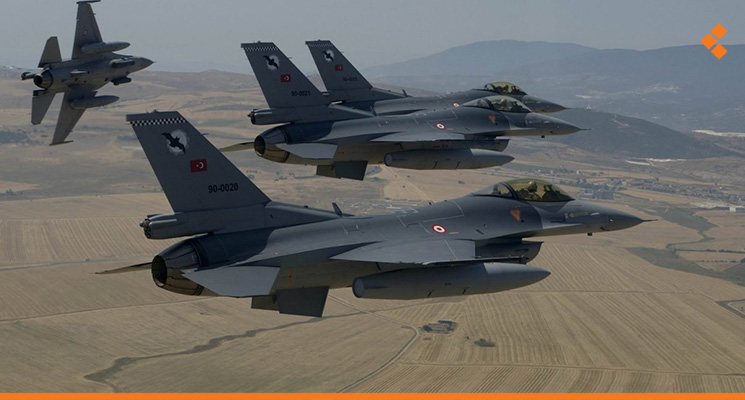Turkey continues its military operations targeting Kurdish Units in northern Syria, with a focus on neutralizing their leaders and positions.
On Monday, Turkish intelligence announced the successful operation in Manbij, located in the eastern countryside of Aleppo in northwestern Syria, resulting in the elimination of 11 members of the “Kurdish units.” This operation was carried out as part of Turkey’s efforts to maintain control over the northern Syrian region known as the “Euphrates Shield.”
According to Turkish security sources cited by Asharq Al-Awsat newspaper, Turkish intelligence agents were able to pinpoint the origins of rocket-propelled grenades and mortar attacks on the Turkish-controlled area in northern Syria. These attacks were launched by what Turkey refers to as the PKK organization and its affiliated groups.
End of “2011 Era”: What Comes After Recent Political Developments in Syria?
Anadolu, the Turkish news agency, reported that intelligence personnel closely monitored the hideouts of the terrorists in Manbij through aerial and ground surveillance. In coordination with the Turkish armed forces, simultaneous operations were conducted on Sunday at designated locations along the Manbij axis. The outcome of these operations included the elimination of 11 terrorists from the PKK organization and its associated factions, as well as the destruction of a terrorist compound.
Post-Astana 20 escalation
Turkey’s military actions against the “Kurdish units” coincide with ongoing Syrian-Turkish talks, part of the reconciliation process mediated by Russia and Iran. Ankara prioritizes addressing the presence of these units near its borders as a key demand for achieving closer ties. The latest round of talks took place on June 20 and 21 in Astana. Badran Jia Kurd, the Head of the Department of Foreign Relations in the “Autonomous Administration,” commented on these talks, stating that the Syrian-Turkish reconciliation has entered a new and potentially hazardous phase to restore relations between Turkey and Syria.
The Syrian government consistently emphasizes that the Kurds are an integral part of the Syrian people. However, it strongly opposes any separatist initiatives within its territory and calls on the Kurdish units to cease cooperation with the United States of America.
Mikhail Bogdanov, the Russian president’s envoy to the Middle East and North Africa, has expressed concerns over the American support of the Kurdish Autonomous Administration, which challenges Syria’s territorial integrity. He criticized the establishment of a quasi-autonomous entity with its administration by certain Kurdish organizations, describing it as completely unacceptable. Bogdanov also claimed that the United States impedes its Kurdish allies from engaging in negotiations with Damascus, indicating a lack of American interest in resolving the Kurdish issue in Syria.
Despite the Syrian state’s attempts to hold more than seven rounds of dialogue with the Kurdish units, these efforts have been unsuccessful in resolving the dispute.
Regarding the possibility of a Syrian state-led confrontation with these units, Deputy Foreign Minister Ayman Sousan previously acknowledged that seemingly difficult or impossible tasks can be achieved in politics. However, he emphasized that certain conditions must be met for military cooperation between Syria and Turkey to materialize. These conditions include Turkey’s recognition of a complete withdrawal from Syrian territory according to a specific timetable, with the implementation of this withdrawal being the foremost requirement. Once achieved, possibilities for various forms of cooperation between the two countries to serve their national security interests can be explored.
This article was translated and edited by The Syrian Observer. The Syrian Observer has not verified the content of this story. Responsibility for the information and views set out in this article lies entirely with the author.


